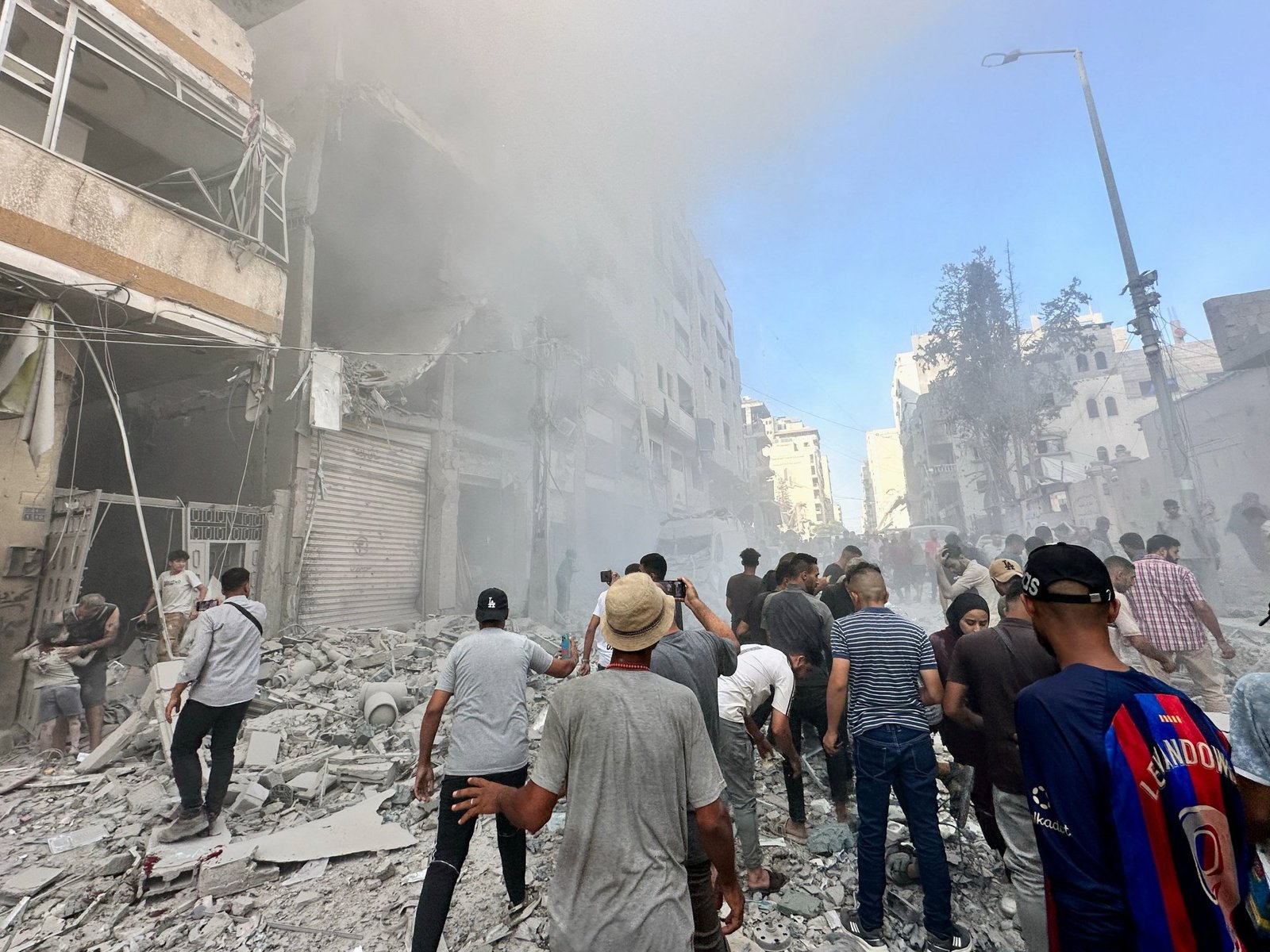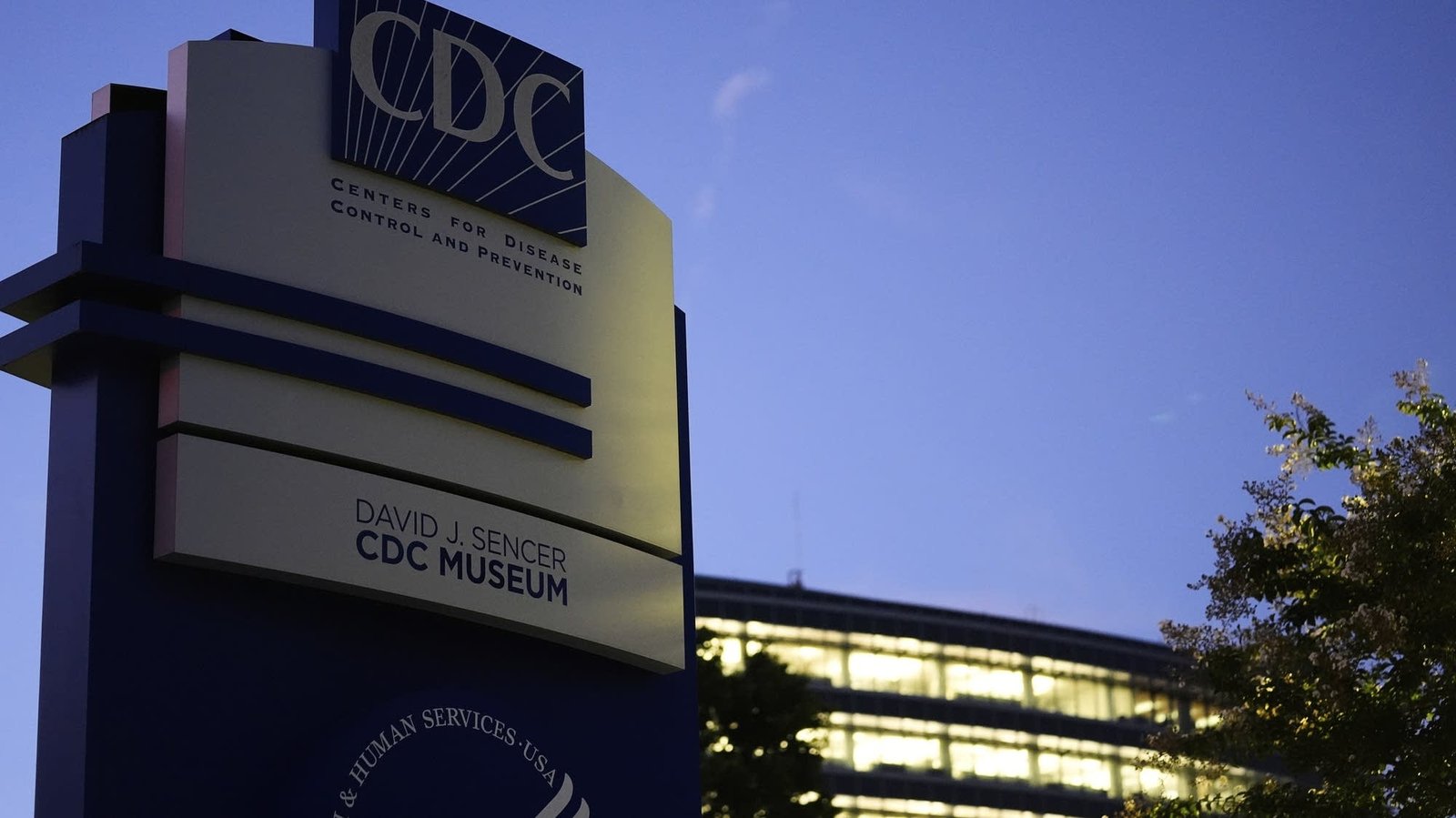Israel has stepped up its destruction of Gaza City as it plans to seize Gaza’s largest urban centre and forcibly displace around one million Palestinians to concentration zones in the south, as it killed at least 78 people across the besieged enclave since dawn, including 32 desperately seeking food.
On Sunday, in Gaza City, the Palestinian Civil Defence reported a fire in tents near al-Quds Hospital after Israeli shelling. At least five people were killed and three wounded when a residential apartment was hit near the Remal neighbourhood.
Ismail al-Thawabta, director of Gaza’s Government Media Office, said the Israeli army is also using “explosive robots” in residential areas and forcibly displacing Palestinians in Gaza City.
In a statement on X on Sunday, al-Thawabta said the army has detonated more than 80 such devices in civilian neighbourhoods over the past three weeks, calling it a “scorched-earth policy” that has destroyed homes and endangered lives.
He said more than one million Palestinians in Gaza City and the north of the enclave “refuse to submit to the policy of forced displacement and ethnic cleansing” despite the destruction and starvation caused by the Israeli assault.
Footage posted on Instagram by Palestinian journalist Faiz Osama and verified by Al Jazeera showed the moments that followed an Israeli aerial attack on the Sabra neighbourhood, in the southern part of Gaza City.
In the footage, as plumes of smoke rise to the sky, a child can be seen screaming with a wound to the leg. A man also lays on the ground with what appears to be a head injury.
The video also shows the destruction left by the strike after residential buildings were flattened by the explosion.
Israel’s forces have carried out sustained bombardment on Gaza City since early August as part of a deepening push to seize the area in the latest phase of its nearly two-year genocidal war.
On Friday, the Israeli military said it had begun the “initial stages” of its offensive, declaring the area a “combat zone”.
‘Fields of rubble’
Reporting from Gaza City on Sunday, Al Jazeera’s Hani Mahmoud said intensifying Israeli attacks have been turning parts of Gaza City, once teeming and crowded with residential buildings, into “fields of rubble”.
“There is non-stop heavy artillery targeting the Zeitoun area and Jabalia, where we are seeing the systematic demolition of homes. There is hardly any fighting going on, but heavy artillery and bulldozers are moving from one street to the other, destroying all of these residential clusters,” he said.
“The majority of people in those areas do not have the luxury to pack up and leave because there is no safety anywhere.”
Another Palestinian journalist was also killed on Sunday. A source at al-Shifa Hospital told Al Jazeera that Islam Abed was killed in an Israeli attack on Gaza City and that she worked for Al-Quds Al-Youm TV channel.
The Government Media Office said the “number of martyred journalists has risen to 247″ since the war began. Other tallies have put the number of journalists and media workers killed at more than 270.
On Monday, five journalists – one of whom worked for Al Jazeera – were among at least 21 people killed in an Israeli attack on Nasser Hospital in southern Gaza’s Khan Younis.
‘Life is difficult, so we will stay in our home’
Many residents in Gaza City are opting to stay put despite Israel declaring it a “combat zone”.
It was Gaza’s most populous city before the war began, home to about 700,000 people. Then hundreds of thousands fled under Israel’s forced evacuation threats before many returned, joined by thousands of other displaced from the south, during a January-to-March ceasefire, which Israel broke.
Fedaa Hamad, who was displaced from Beit Hanoon, said she has “no plans to leave” Gaza City this time despite Israel’s latest warning.
“We are tired from the first displacement. Where are we going to go? Is there a place in the south? We cannot find it,” she said.
Akram Mzini, a resident of Gaza City, said he would not leave “because displacement is very difficult”.
“We were displaced to the south before, and displacement in the south is not simple and it is costly,” he said. “Life is difficult, so we will stay in our home, and whatever God wants will happen.”
Elsewhere in Gaza on Sunday, an Israeli attack on the centre of Deir el-Balah killed at least four people, Al Jazeera Arabic reported.
Earlier, medical sources said an Israeli bombardment killed at least one person and wounded several in the city, located in the central part of the Gaza Strip.
Israeli forces have killed at least 78 Palestinians across Gaza since dawn, including 32 aid seekers, according to medical sources.
Since the war began, Israel has killed at least 63,459 people and wounded 160,256. A total of 1,139 people were killed in Israel during the Hamas-led October 7, 2023, attacks, and about 200 were taken captive.
On Sunday, Israeli army chief Eyal Zamir held a situation assessment meeting with his top commanders, saying the military must “initiate” more attacks to surprise and reach its targets anywhere.
Many more reserve soldiers will assemble this week “in preparation for the continued intensification of the fighting against Hamas in Gaza City”, Zamir was quoted as saying by the military.
Meanwhile, the armed wing of Hamas said its fighters successfully attacked two invading Israeli military vehicles in Gaza City on Saturday.
The Qassam Brigades said a Merkava tank of the Israeli army was hit with a Yassin-105 shell, while a D9 military bulldozer was targeted with an explosive device on a street southwest of the Zeitoun neighbourhood of the besieged area.
As global condemnation against the situation grows, in the largest attempt to break the Israeli blockade of the Palestinian territory by sea, the Global Sumud Flotilla left the Spanish port city of Barcelona on Sunday.
The flotilla’s launch comes after the United Nations-backed Integrated Food Security Phase Classification (IPC) declared a state of famine in Gaza this month.
The Global Sumud Flotilla, which describes itself as an independent group not linked to any government or political party, did not say how many ships would set sail or the exact time of departure, but Swedish campaigner Greta Thunberg spoke of “dozens” of vessels.
Sumud means “perseverance” in Arabic.
Two previous attempts by activists to deliver aid by ship to Gaza were blocked by Israel.
Mohamad Elmasry of the Doha Institute for Graduate Studies told Al Jazeera that while the flotilla was “an important act of symbolic resistance … ultimately, they will be intercepted”.
“This is not going to solve the famine,” he said. “What’s going to solve the famine, ultimately, is governments doing their job to stop genocide and deliberate starvation programmes.”




